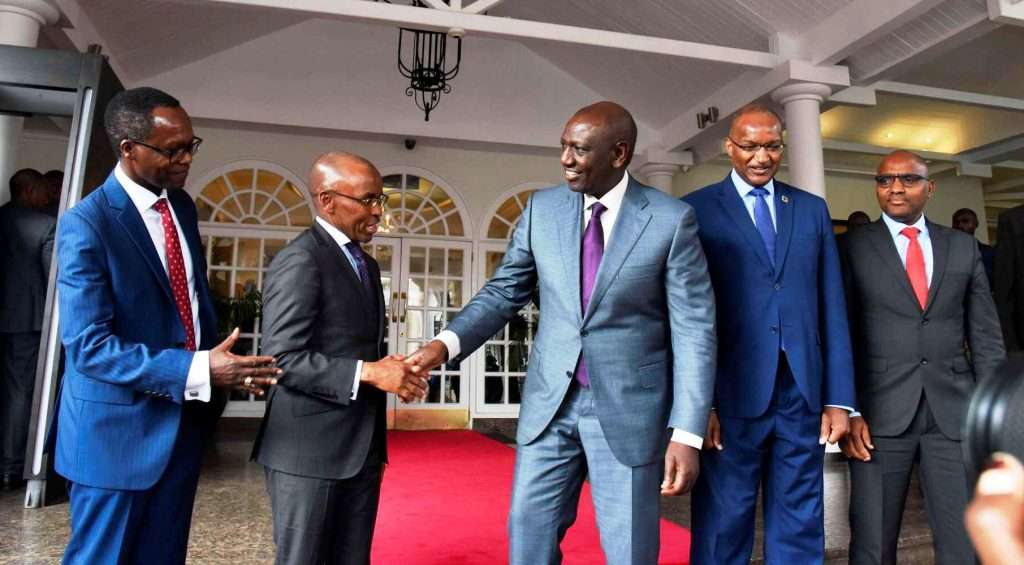The Kenyan Opposition is demanding that President William Ruto be held personally accountable for alarming allegations of police phone surveillance linked to the tracking and abduction of government critics. Recent reports suggest that telecommunications companies in Kenya may be sharing sensitive personal data with police, raising serious concerns about privacy and state-sponsored violations.
Led by Wiper Party leader Kalonzo Musyoka, opposition leaders condemned this alleged collaboration between the police and telecom giant Safaricom, claiming it facilitates a culture of abductions and extrajudicial killings. They criticized Ruto for dismissing reports of police misconduct as “fake news,” asserting that his inaction is detrimental to the nation.

Kalonzo emphasized, “It is Mr. Ruto’s misguided efforts to transform Kenya into a police state that are causing harm. The responsibility lies with him.” He further called for Ruto’s resignation, citing violations of his oath to uphold the Constitution and protect the public.
The Opposition also called for accountability from key security officials, including the heads of the National Intelligence Service and the Directorate of Criminal Investigations, asserting that they should face consequences for infringing on the rights of Kenyans. Kalonzo pointed out the critical need for adherence to the Data Protection Act, which mandates consent for collecting personal information.
He condemned telecommunications companies like Safaricom, Airtel, and Telkom for allegedly sharing location data without customer knowledge, warning them of potential criminal liability for their actions. The link between this data sharing and the recent disappearances of activists further amplifies the call for urgent action.
The Opposition also raised alarming concerns about the treatment of unclaimed bodies at taxpayer-funded mortuaries, suggesting that these issues tarnish the government’s reputation. International human rights organizations have echoed these sentiments, highlighting violations of global human rights treaties ratified by Kenya.
In response to the controversy, U.S. Ambassador to Kenya Meg Whitman stressed the importance of respecting privacy laws and the rule of law in democratic societies. Safaricom has defended its commitment to customer data protection, asserting compliance with international standards, while Telkom emphasized that it only shares customer information with law enforcement when required by court order.
As the situation unfolds, the demand for accountability and respect for human rights remains a pressing concern for Kenyans and the international community alike.





